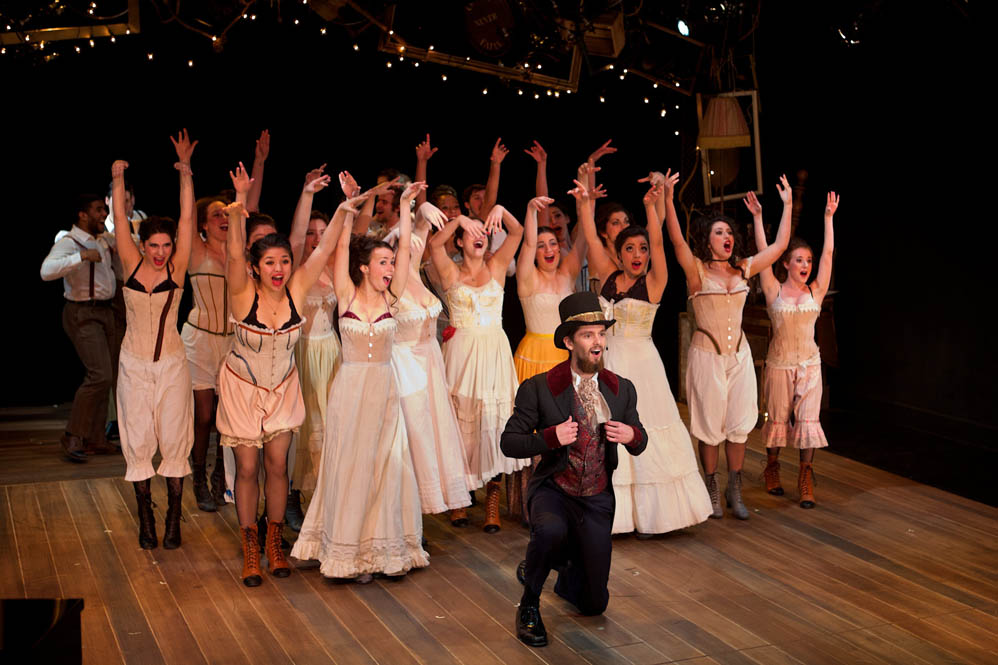Foundational Courses
ACTING:
Focusing on contemporary scene study and a range of acting exercises designed to free the actor's imagination, first-year acting study provides fundamental understanding of acting objectives with tools and approaches for personalization in order to bring students and their life experiences into their work on a written text. Acting classes are held twice per week.
DANCE:
Students take Foundations of Ballet or Ballet I depending on the individual student's dance aptitude upon entry into the training. Ballet is given twice per week. In addition, students have Contemporary Dance, which focuses on current dance vocabularies, Broadway styles and urban, contemporary, popular dance, including an eclectic “of-the-moment” range of styles, techniques, skills, and approaches. Contemporary Dance is taught once per week.
MUSIC:
Students study Music Theory, where they are taught the fundamentals and foundation of music or, if they have previously studied music theory, additional training is provided, equipping the actor to learn music quickly and to understand melodic, harmonic, and rhythmic relationships, and their impact on vocal performance and acting through music. Music theory meets twice per week.
Small Group Music teaches students how to sustain dramatic and musical integrity in harmonic singing in a range of small groups from trios through full choral singing in a wide range of increasingly challenging arrangements. This course meets once per week.
Sight Singing teaches students how to sight-read music quickly, identifying individual parts, translating what's on the musical page into a sustained, dramatically effective musical phrase and doing so quickly. This skill is particularly important for the actor working on new musical material that has never been performed before. This course meets once per week.
Vocal Performance teaches the essential ability to personally connect to the meaning and intent of a lyric and the musical information provided by the composer as well as the lyricist, so that a student can “own” the song and portray the musical character with a deep personal investment. Students study how to pursue the objective through, and within, the musical performance.
Individual private voice lessons are given to each NSB student once per week in order to build the actor’s musical facility and ability to believably act and sing in the voice of the character, serving the narrative in a dramatically compelling and musically beautiful expression that is healthy and sustainable in any genre of music, through any rehearsal process and performance long run.
SPOKEN VOICE:
Training of the spoken voice is provided so that the actor can communicate in a clear, resonant, and expressive way, with any dramatic text and in any size theatre in a healthy and sustainable way. The first year trains breadth, imagination, and the clarity of intention made manifest on the voice so what the actor thinks and feels is constantly communicated through the precision and clarity of the utterance. Voice meets once per week.
SPEECH:
Speech shares goals and outcomes with voice training. The class focuses on both the mechanics and physiology of spoken word and how the body produces sound as clear expression. This class may also explore components of speech and dramatic literature as keys provided by writers in order to unlock character and intent. Speech meets once per week.
